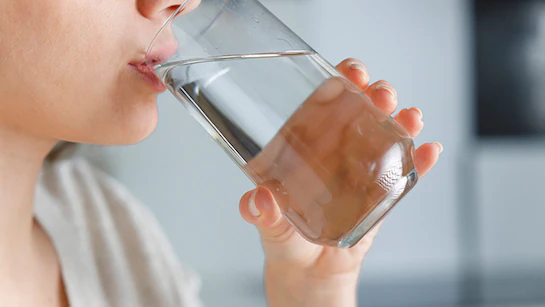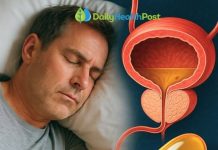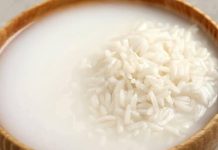Water makes up about 60% of your body, and even mild dehydration losing just 1–2% of your total body water can impair cognitive and physical performance. Drinking adequate fluids is essential for regulating body temperature, boosting metabolism, lubricating joints, and removing metabolic waste
10 Common Signs You’re Not Drinking Enough Water
1. Dry Mouth, Sticky Feeling & Bad Breath
A consistently dry mouth or sticky feeling—and even bad breath—may signal dehydration, especially when saliva production slows down

2. Dark or Strong-Smelling Urine, Less Frequent Bathroom Visits
Urine that is dark yellow or has a pungent odor is a key sign of dehydration. Passing urine less often than usual—particularly fewer than six times daily—is also concerning.
3. Fatigue, Sluggishness & Low Mood
Low energy, overall fatigue, and even sugar cravings are common in mild dehydration. Researchers caution these symptoms are often mistaken for laziness or stress.
4. Headaches, Dizziness, or Brain Fog
Even mild fluid loss can reduce blood volume, affecting oxygen supply to the brain, which may result in headaches, sluggish thinking, and dizziness.
5. Muscle Cramps, Joint Pain or Weakness
Inadequate fluid levels can cause muscle cramps or joint stiffness. Water helps maintain proper lubrication and nutrient delivery to soft tissues.
6. Dry, Flaky Skin
Dehydration reduces skin elasticity and causes dryness, making skin appear dull or less radiant even with moisturizers.
7. Constipation & Digestive Sluggishness
Water is essential for proper digestion. Low hydration often contributes to constipation and gastrointestinal discomfort.
8. Craving Salty or Sugary Foods
A sudden craving for salty snacks or sweets can signal electrolyte imbalance due to dehydration. These cravings are your body’s way of replenishing sodium and water.
9. Dizziness or Faint Feeling on Standing
Postural hypotension—feeling dizzy when standing—occurs when blood pressure drops due to low blood volume or fluid levels.
10. Lack of Tears, Sunken Eyes, Especially in Children
In children, dehydration signs include crying without tears, sunken eyes or soft spots, and reduced urination (e.g. fewer wet diapers). Even infants may be lethargic or irritable
When Dehydration Becomes Dangerous
Moderate dehydration (5–8% fluid loss) can lead to dizziness, weakness, and confusion. Severe cases—over 10% fluid loss—may cause seizures, kidney failure, or even death. Seek medical attention if symptoms include confusion, rapid heartbeat, fainting, or no urination for over eight hours.
Hydration Tips & Prevention Strategies
Drink regularly, not just when thirsty: Schedule water intake, keep a refill bottle in sight, or start your day with a full glass of water. Monitor your urine color: Aim for pale yellow—not amber—as a hydration indicator. Hydrate extra during heat, exercise, or illness: Remember to replenish fluids and electrolytes if sweating heavily, vomiting, or having diarrhea. Oral rehydration solutions (ORS) can help in such cases.

Children: Extra Care Required
Kids (and especially babies) lose water rapidly and often can’t communicate thirst. Watch for fewer wet diapers, sunken features, or crankiness. In mild cases, ORS or breastmilk helps; severe signs require immediate medical evaluation. Maintaining proper hydration can also improve skin appearance, aid in weight management, and enhance physical performance. Make water a daily habit to support long-term health, energy, and overall well-being.

















